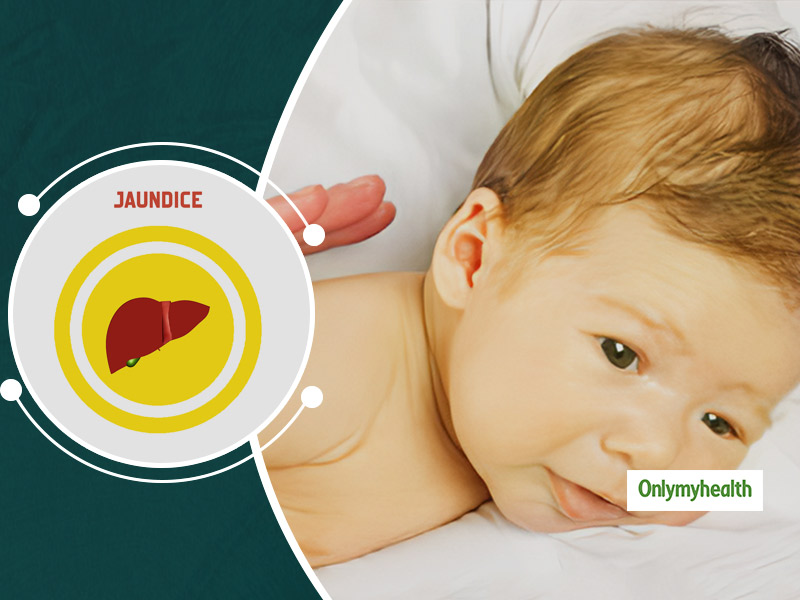
One of the significant causes of jaundice in newborn babies is the underdeveloped liver, that is unable to remove the excess bilirubin produced. The condition, though not harmful for the baby, can become a life-threatening situation if not diagnosed on time. Jaundice in otherwise healthy newborn babies is called physiological jaundice. Generally, 60-70% of newborn babies develop this kind of jaundice and out of which only 10% require further treatment for it. In most cases, it doesn’t cause any harm to the baby, but rarely very high levels can affect the brain and cause damage.

Dr Ramani Ranjan, Consultant Pediatrician & Neonatologist, Motherhood Hospital Noida, explains, “It happens because of the immaturity of the organs like the liver and other factors. So, as the baby grows and puts on weight, things start improving by themselves. In premature babies, the duration of this jaundice is little longer and it gradually comes down by three weeks of life. If the jaundice doesn’t subside within a certain period or if its higher than recommended levels based on jaundice charts then we need to admit the baby and start on phototherapy, which is blue light. It usually brings down jaundice substantially within 24 hours to 48 hours depending upon the severity of the disease.”
Also Read: Germs In Food Can Lead To Food Poisoning In Infants, Says Pediatrician Dr Prabhjot Kaur Bajaj
Newborns And Jaundice
There are two types of jaundice: the normal physiological jaundice and pathological jaundice. In the latter case, there is a severe problem with the liver because of some infection in the liver system or some metabolic condition. If it’s pathological jaundice in the baby, it’s bothersome. Then we do specific tests, including ultrasound and blood tests. After seeing the reports, we take the call what next to be done, and that may include surgery as well.
Causes of Jaundice in Newborns
Dr Ranjan Explains, “The most important cause is the immaturity of the liver system. The red blood cells (RBCs) carry oxygen, and normal life span in an adult is 120 days, whereas the life span in newborn babies is slightly less. So, more RBCs break down, and the by-product is bilirubin which leads to jaundice. In diseases because of the different enzymes which are probably absent or not working properly in the body can also cause pathological jaundice. So it’s important to differentiate whether it’s the normal physiological jaundice or pathological jaundice and decide the treatment thereof if needed.”
Other causes include:
Physiological Jaundice: This is a common condition and may appear within 2-3 days of birth. The condition peaks between 2-4 days and gets treated in about 2 weeks’ time. This is a harmless condition and causes no problems in the development of the baby.
Breastfeeding Problems: As per the NYU Langone Medical Center, about 13% of cases of jaundice in babies occur due to breastfeeding problems such as low milk supply or inadequate feeding time. Some new mothers are unable to gauge the time required for the baby to be adequately fed, resulting in the baby being underfed.

Abnormal Liver Function: Liver regulates the production and removal of bilirubin in the body. In some newborn babies, the liver may not have yet fully matured or developed an infection, resulting in jaundice. The condition can be resolved through proper medication.
Hemolysis: This is a harmful condition and is caused due to abnormal breakdown of red blood cells in baby’s body. Blood group incompatibility or Rh diseases are two possible reasons for this type of jaundice.
A common type of jaundice does not require any treatment and generally gets resolved in 1-2 weeks. However, you must get your baby checked for bilirubin levels if he shows any symptoms of jaundice. Consult your doctor if your baby looks weak, is feeding poorly, appears uncomfortable, cries frequently and has high fever. Timely medical attention will ensure that your baby is treated at the earliest and does not develop any complications.
Also Read: Infants In Womb Can Develop Kidney Dysplasia
Care Tips For Kids With Jaundice
- Make sure what kind of jaundice your baby is dealing with. In most cases, it’s benign jaundice which goes away by itself.
- Must consult a paediatrician if your baby looks yellow.
- Make sure that the baby is taking adequate feeds because dehydration is the factor which can extend the period of jaundice.
- Ensure that baby is passing urine and stool normally
- Sunlight doesn’t help. Instead, it may cause a problem like hypothermia, especially in winters, may cause eye injury if newborns’ eyes are exposed to bright light and rarely skin burn.

If jaundice doesn’t subside within a specified period or if it is higher than recommended levels based on jaundice charts, then we need to admit the baby and start on phototherapy, which is blue light. It usually brings down jaundice substantially within 24 hours to 48 hours depending upon the severity of the disease.
With inputs from Dr Ramani Ranjan, Consultant Pediatrician & Neonatologist, Motherhood Hospital Noida
Read more articles on New Born Care







